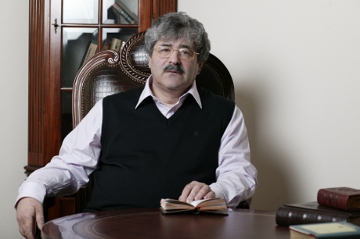
Facebook has announced the creation of its own political action committees. Thus, the network will be able to participate in the financial support of the candidates in the upcoming elections in the U.S. in 2012.
At first glance the versatility of the Web involves not simply impartiality, but is also demonstratively apolitical and non-partisan, because among the users are people of different social, political, cultural and even civilization statuses. Apparently, regardless of this fact, a company spokesperson said that their voice would be heard in support of candidates who show care for "a more open and connected world, with innovative approaches to the economy."
This thesis, of course, is vague, but however, avoids reference to any particular political force, and suggests that it is supporting some independent politicians, "professing" to believe in the principle of an "open society."
However, Facebook recently organized a highly publicized public meeting with leading congressional Republicans. This event was followed immediately afterwards by a Google sponsored Republican presidential debate, together with the Fox News channel.
Google could find that Republicans are much more energetic than the Democrats in supporting them during their "war of nerves" with the Chinese authorities. In their turn, the leaders of Facebook refuse in any way to comment on their motivation for their political preferences in the election campaign or to disclose details of future political activities.
However, lobbying by Facebook did not start yesterday and began to rise significantly during the "Arab revolution", when the significant and important role of social networks in the events became apparent. This year, according to the Center for Responsive politics, Facebook has already spent $550 thousand on targeted lobbying. A modest figure, when compared to the cost to Google for the same purpose - $2. 1 million.
However, it is not the amounts that matter, but the trend. On the one hand, any lobbying leads not only to participation in, but also to fusion with the policy. On the other hand, social networks are developed under the banner of the call to static political structures as a kind of self-organizing public authority, which is in opposition to the usual national and global world order.
The parallel and rapid development of WikiLeaks and social networking is no accident. In essence, WikiLeaks is the same type of social network, uniting those who do not trust the efforts of nation-states in global governance. As one Russian politician said, WikiLeaks is a challenge to the "concert" so far to sovereign states. Such a role, at least in relation to the internal sovereignty of the Arab countries, is played by Facebook. It is noteworthy that the founder of the site, Mark Zuckerberg, in second place in his priorities of personal interests outlined the theme of “revolution."
No matter how important the American sites of Facebook and other social networks are, their stage is much broader than the national borders of the United States. Perhaps in the near future as a result of mergers, acquisitions and partnerships, we will be dealing with a single world social network.
By the way, Twitter recently moved under the roof of the shared home of the largest social networks in Ireland, refusing British hospitality. Now Ireland has become, according to the London Times, the base for international operations of Twitter, Facebook, Yahoo!, Google, and others. "Each of them, according to the newspaper, prefers to be there, not here."
It is possible that not only the tax benefits and the English language have led to such a choice. The small country will be more attentive to those who wish to turn it into the center of a new "soft political force", and will have every reason to defend its new inhabitants from unnecessarily rigorous politicians, who see social networks as long-term dangerous competitors.
In fact, you never know, could it not be possible in the future for Dublin to become a second New York? At the time, the distinguished British historian Paul Kennedy, discussing possible ways to reform the UN, suggested the possibility of creating a "world parliament" on its basis.
True, he did not approve of this suggestion. But if today we are talking about electronic government, does it not bring to mind the idea that the global electronic social network can become a prototype for Kennedy’s dream of a "world parliament"? Globality, accessibility, and democracy - all the necessary qualities are evident.
These forecasts are not unfounded, according to pundits like Stieglitz and Attali, the inevitability of a "world government" as a result of the inability of nation states to adequately respond to global challenges, then surely, to ensure the legitimacy of the "world government" it would not hurt to have a "world parliament." It is also important that the functioning of the Parliament would provide a relatively narrow range of low-cost operators with access to extensive personal information and personal databases, and on a global scale.
According to the British Telegraph, recent changes in the organization of Facebook have led to the fact that this social network "has positioned itself not only as a reflection of the social dimension of the person, but as a mirror of his life online."
A "World Government", or "world parliament" sounds like a fantasy for many today, but "there are more things on earth, Horatio ..." And if global networks await a political role, then the political lobbying and attempts to directly control the political process on their part should not surprise us.
read more in our Telegram-channel https://t.me/The_International_Affairs

 12:01 29.09.2011 •
12:01 29.09.2011 •






















